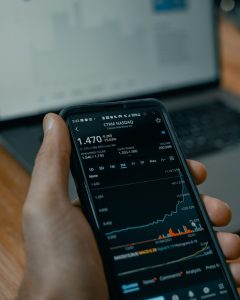Forex trading is a lucrative business that can generate significant profits if done correctly. However, it can also result in losses if a trader does not understand the intricacies of the market. One of the most frustrating situations for a trader is when the price moves in their favor, but they still lose money on a trade. This phenomenon can be confusing and demoralizing, but there are several reasons why it can occur.
Stop Loss Orders
Stop-loss orders are used by traders to minimize their losses if the market moves against them. When a stop-loss order is executed, it closes the position at a predetermined price, limiting the trader’s losses. However, stop-loss orders can also limit the potential profit a trader can make on a trade.
For example, let’s say a trader enters a long position on the USD/JPY currency pair at 110.00 with a stop-loss order at 109.50. The trader expects the price to increase and aims to take profit at 111.00. However, the market moves against the trader and reaches 109.50, triggering the stop-loss order. The trader’s position is closed, resulting in a loss of 50 pips, even though the market eventually moves in the desired direction.
Slippage
Slippage occurs when the execution price of a trade differs from the price requested by the trader. This can happen when there is a sudden movement in the market, such as during news releases or market open/closes. Slippage can cause a trader to lose money even if the market moves in their favor.
For example, let’s say a trader enters a long position on the EUR/USD currency pair at 1.2000. The market quickly moves in their favor, and they expect to close the trade at 1.2050. However, due to slippage, the trade is executed at 1.2040, resulting in a loss of 10 pips.
Spread
The spread is the difference between the bid and ask prices of a currency pair. It represents the cost of trading and is how forex brokers make money. The spread can vary depending on market conditions and liquidity, and it can widen during volatile periods. The spread can also cause a trader to lose money even if the market moves in their favor.
For example, let’s say a trader enters a long position on the GBP/USD currency pair at 1.4000. The market moves in their favor, and they expect to take profit at 1.4050. However, the spread widens to 3 pips, and the trader’s position is closed at 1.4047, resulting in a loss of 3 pips.
Leverage
Leverage allows traders to control a large position with a small amount of capital. However, leverage can also amplify losses if the market moves against a trader. When a trader’s losses exceed their account balance, they receive a margin call, and their position is closed.
For example, let’s say a trader enters a long position on the USD/CAD currency pair at 1.3000 with a leverage of 1:100. The trader’s account balance is $1,000, and they open a position of $100,000. The market moves against the trader, and the position is closed at 1.2950, resulting in a loss of $500. Since the trader’s account balance is only $1,000, the loss exceeds their account balance, and they receive a margin call, causing their position to be closed.
Conclusion
In conclusion, losing money on forex trades when the price moves in your favor can be frustrating and demoralizing. However, there are several reasons why this can occur, such as stop-loss orders, slippage, spread, and leverage. Traders should understand the risks involved in forex trading and use proper risk management techniques to minimize their losses.





